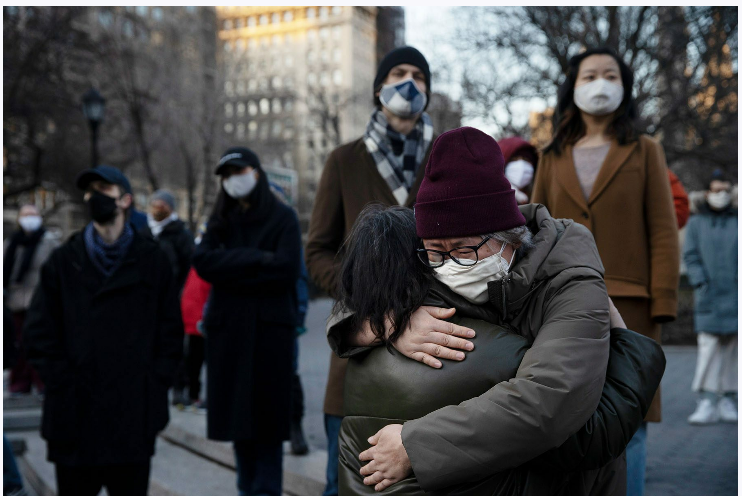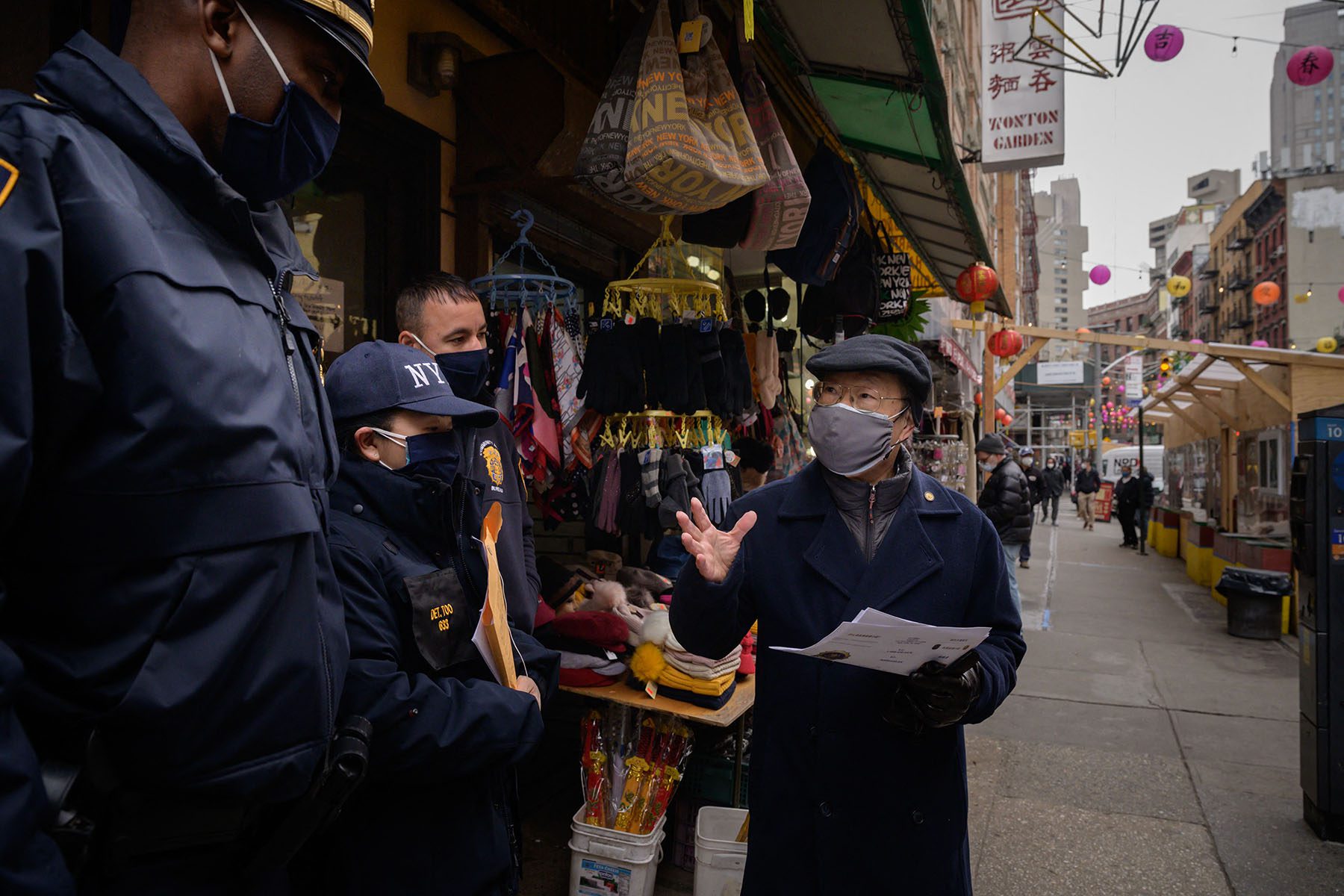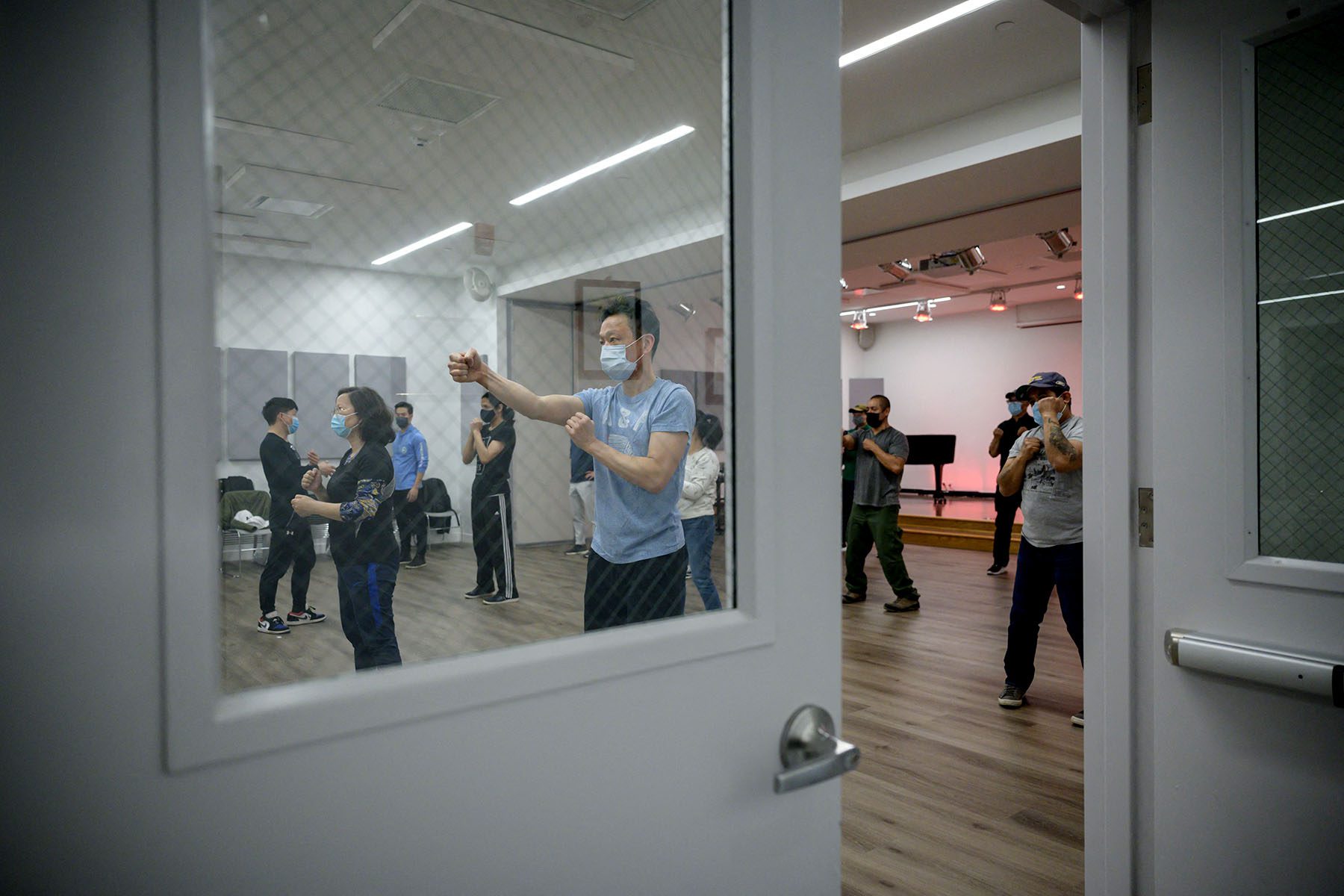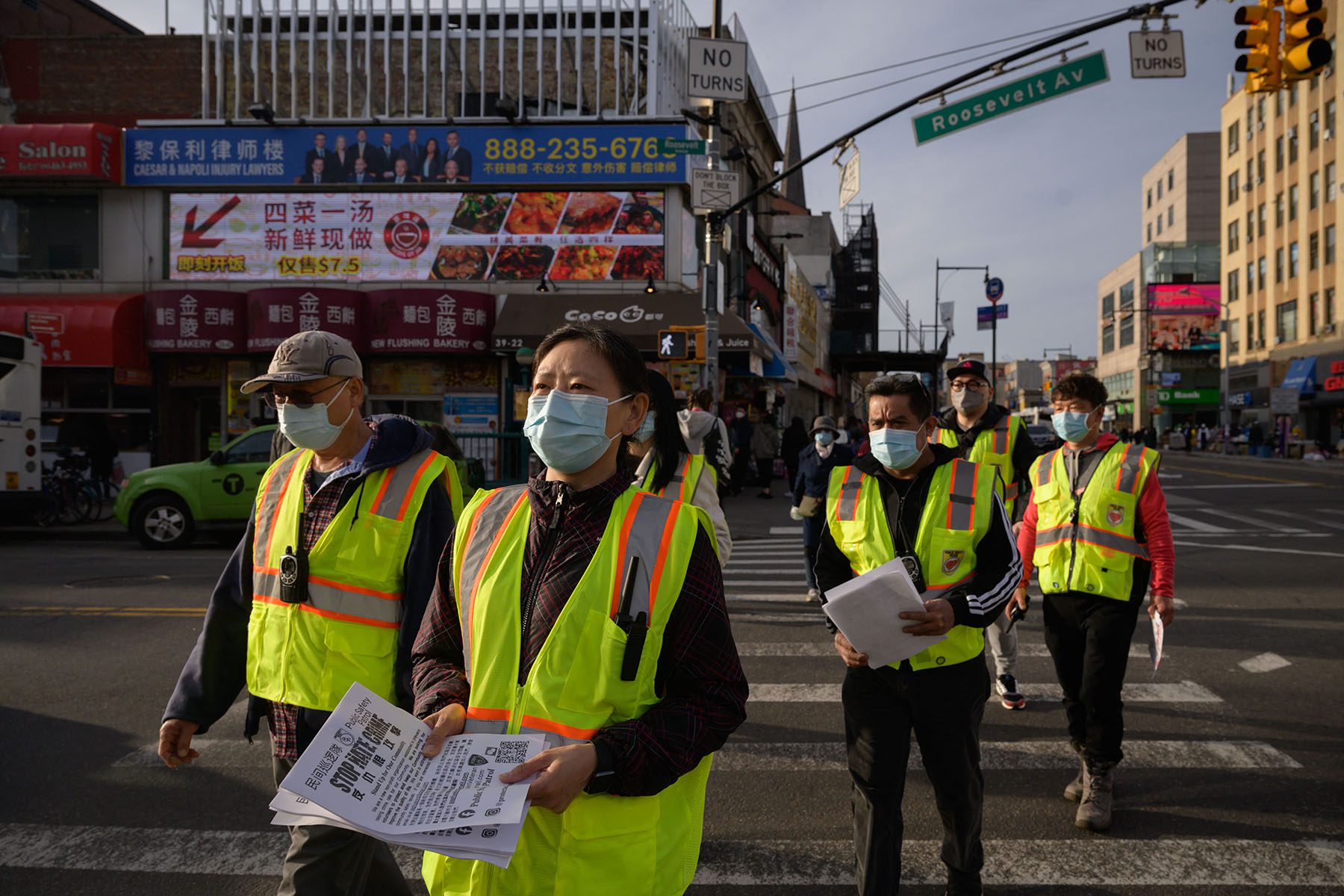
Several months into the pandemic, Jennifer Chen knew it was time to talk to her 5-year-old twins about a safety plan if something were to happen to her in public. Chen, a 42-year-old Taiwanese American based in Los Angeles, said she bought pepper spray and enrolled in a self-defense class after hearing enough stories from Asian Americans and Pacific Islanders friends who had been harassed or accosted.
“It was really hard and scary for all of us,” Chen said. “They were like, ‘We don’t want anything to happen to you, Mommy.’ I told them I want all of us to be safe, and I’ll do everything I can. But this whole time has been scary for the kids.”
Hate crimes targeting AAPI people made headlines during the pandemic as officials, from President Donald Trump on down, used xenophobic rhetoric linking the virus with the AAPI community. Then, on March 16, 2021, a White gunman opened fire in three spas in the Atlanta area, killing eight people, including six women of Asian descent. Those attacks galvanized many officials to speak out against the violence, or accelerate their work to prevent it. Congress passed an overwhelmingly bipartisan COVID-19 Hate Crimes Act, and President Joe Biden and Vice President Kamala Harris traveled to Atlanta to speak with community leaders and state lawmakers.
In some states, including California, Illinois and New Jersey, policymakers are pushing new legislation, including bills to direct transit agencies to combat street harassment and require Asian-American history in schools. Now, one year later, people are worried that momentum has waned and not enough is being done even as the number of reported incidents of hate, particularly towards women, continues to rise dramatically.
In recent months, two women of Asian descent were fatally shot in spas in Albuquerque. New York City has seen a particularly gruesome stream of violence: a 67-year-old woman of Asian descent was punched 125 times, seven AAPI women were assaulted by the same man, one woman was pushed in front of an oncoming train and another was found stabbed to death in her own apartment after being followed. Stop AAPI Hate, a coalition that tracks incidents of hate, violence, harassment, discrimination, shunning and child bullying against Asian Americans and Pacific Islanders in the United States, tallied nearly 11,000 hate incidents from March 2020 to the end of 2021, according to its latest findings.

Manjusha Kulkarni, a co-founder of Stop AAPI Hate and executive director of AAPI Equity Alliance, said the coalition’s data is the “tip of the iceberg.”
“Even though the incidence of COVID itself may have waned, thankfully, we unfortunately don’t seem to be seeing a similar pattern with the hate and discrimination,” Kulkarni said, adding that a recent Edelman survey found that 1 in 5 AAPI people reported experiencing a hate incident in the past 12 months. That is an estimated 4.8. million Asian Americans and 320,000 Pacific Islanders. The National Asian Pacific American Women’s Forum (NAPAWF) also recently published the results of a survey completed by more than 2,400 AAPI women. Nearly 3 in 4 said in the survey that they experienced racism or discrimination in the past year.
“I think it’s really important that these American communities, both cities and local municipalities, start building authentic relationships to integrate and create a sense of belonging for us,” said Sung Yeon Choimorrow, the executive director of NAPAWF. “I actually want a seat at the table because I want to see our government reflect my values and my family’s challenges. … I don’t know that that’s necessarily going to make Asian American women feel safer immediately — but that’s a start.”
Last Saturday, Asian Americans Advancing Justice-Atlanta, a nonprofit legal advocacy organization that focuses on protecting Asian Americans, Native Hawaiians and Pacific Islanders in Georgia and the Southeast, helped organize a community remembrance event ahead of the one-year anniversary of the spa shootings and led a discussion on where to go from here — including the role of law enforcement.
“When we think about how to address the root causes, we can’t be reinforcing the systems that lead to the conditions that help further the violence that we’re combating,” Phi Nguyen, the group’s executive director, told The 19th.
Future policy discussions that truly tackle violence against the AAPI community must address issues on a holistic level, she argued. That means mental health, homelessness and ways in which people’s basic needs aren’t being met. But Nguyen added that it’s important to recognize how the criminal legal system can uphold and perpetuate both racialized and gendered violence. Also key, she said, is tackling misinformation and how different communities are scapegoated and “othered” in society.
Anti-AAPI sentiment is not new, though the last big wave happened decades ago. Roland Hwang, a professor of Asian-American history at the University of Michigan, co-founded American Citizens for Justice, a key civil rights group, following the 1982 murder of Vincent Chin, a Chinese-American man.
“We had to form an organization in Detroit, create a court watch, monitor the case, get the probation overturned and push the Department of Justice to carry the case with a civil rights prosecution,” Hwang said, noting it was the first time Asian Americans were seen as a federally protected class. “What we have now is an order of magnitude more serious.”

Thu Nguyen is the executive director of OCA-Asian Pacific American Advocates. When the Atlanta shootings happened, she said she immediately contacted her mom and aunts, who work in a nail salon in Houston. Concern for her family, her community and her own safety has only heightened since then. Her father recently mentioned finding dead birds and other dead animals around the perimeter of the house. It’s not clear if someone is deliberately placing them, but police officers said they could not do anything without security footage, she added.
“As things are opening up again, I don’t really want to leave the house anymore,” said Thu Nguyen, who is 26 and lives in Washington, D.C. “And when I do, I want to make sure that people know where I am so I’m sharing my location with friends more. … Even taking the Metro has been pretty scary.”
“If the best we can do right now is have self-defense trainings and hand out pepper spray and whistles, that’s actually really bleak,” she said. “It’s not a good thing to see.”
Jo-Ann Yoo, the executive director of the Asian American Federation, said the level of violence is “astounding” and insisted that local, state and federal officials could be doing more. Safety trainings are a good start, but “we’re not going to get out of it by ourselves,” she said. “We’re going to need solidarity from everybody else.”
Kalaya’an Mendoza, the director of U.S. Programs at Nonviolent Peaceforce and a Filipino American, has spent the last two decades training communities and activists around the world on “mutual protection” and “community safety.” In the past year alone, the organization has held more than 100 training sessions — attended by predominantly AAPI people of all ages — across the country, including 400 New Yorkers.

“I’ve never been more fearful for my community’s safety and well-being than I have the last two years,” Mendoza said. “Being Asian and in NYC right now feels like we are being hunted.”
Mendoza, who is hard of hearing, described a “nightmarish world.” He’s been spit on and had racial epithets hurled at him, but he said he knows his fear is minor compared with that of AAPI women and elders.
“It’s been over two years now and the level of hyper-vigilance that we are experiencing is tremendously damaging to our mental well-being,” Mendoza said. “And it just feels like no one is listening.”
Michelle Ming, a 24-year-old Chinese American, said she moved from Washington, D.C., to New York last March for a new job with United We Dream, the largest immigrant youth-led network in the country. In the past two years, Ming said she’s been yelled at, chased down the street and spit on.
Now, Ming takes precautions. She keeps her back to walls in subway stations to avoid getting pushed onto the tracks, she tries not to walk alone anymore, and she monitors social media for new photos of battered faces and footage of attacks.
“In some ways, I’ve never really felt truly safe in this country,” Ming said. “The history of structural racism, the way they’ve treated people like my parents who are immigrants here, the way they treat people of color and women … But I think the thing that makes me feel the most unsafe is not the person-to-person interactions that I have on a daily basis. It’s the knowledge that if something were to happen to me, the government would not be able to find a solution to prevent it from happening again to anyone else.”
